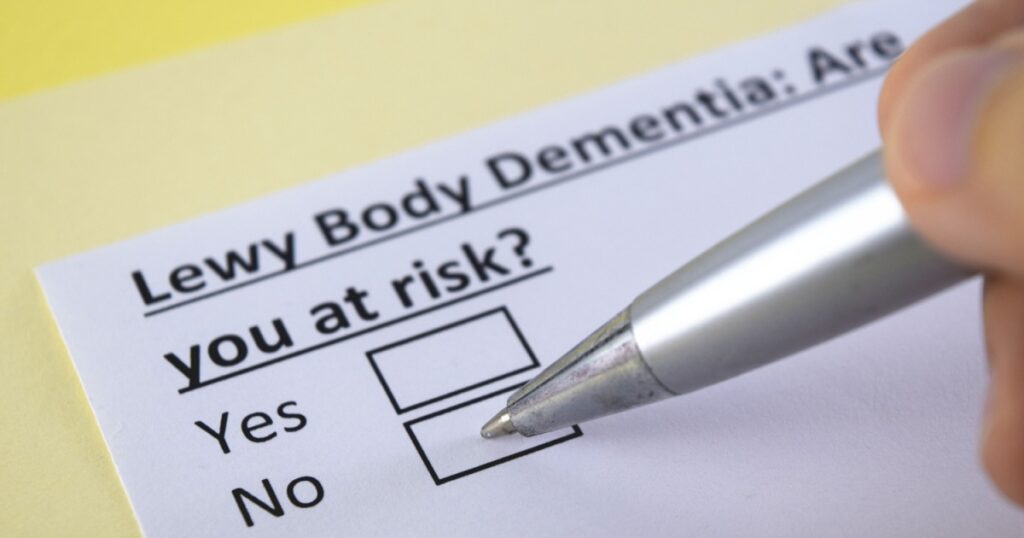Dementia is a debilitating condition that affects millions of people worldwide. Most of us probably know someone who has suffered from it – maybe a grandparent, parent, aunt, or uncle. While there is no known cure for dementia, research suggests that certain lifestyle changes can help reduce the risk of developing this condition. These are ten of the most effective ways to lower your dementia risk and promote brain health.
Understanding Dementia

Dementia is a general term used to describe a decline in cognitive function severe enough to interfere with daily life. It is characterized by memory loss, impaired thinking, and difficulty with problem-solving or language. Alzheimer’s disease is the most common type of dementia, accounting for approximately 60-80% of cases. Other types include vascular dementia, Lewy body dementia, and frontotemporal dementia. (1)
Read More: The Startling Connection Between Bedtime and Dementia Risk
10 Ways To Lower Your Dementia Risk

There is no full-proof way to ensure that you won’t have dementia later in life. Certain risk factors, such as family history or age, we cannot control. That being said, there are some things that you can do to lower your risk of developing the disease. These are mostly all related to lifestyle and are well within your power to implement into yours. It is never too early or too late to start. (2)
1. Prevent and manage high blood pressure and blood sugar

Keeping your blood pressure and blood sugar levels under control is crucial for reducing the risk of dementia. High blood pressure and diabetes are both linked to an increased risk of cognitive decline. Adopt a healthy diet, exercise regularly, and take prescribed medication to manage these conditions.
2. Maintain social activities/social contact

Engaging in social activities and maintaining regular social contact is vital for brain health. Social interaction stimulates the brain and helps to ward off dementia. Join clubs or community groups, spend time with loved ones, and make an effort to connect with others regularly.
3. Maintain a healthy weight

Obesity has been identified as a risk factor for dementia. By maintaining a healthy weight, you can reduce the likelihood of developing cognitive decline. On top of that, all of the ways that you avoid being overweight or obese also contribute to lowering your dementia risk. Eat a balanced diet, exercise regularly, and manage portion sizes to achieve and maintain a healthy weight.
Read More: There Are 8 Kinds of Dementia. Here’s How to Recognize Them, According to Experts
4. Keep physically active

Regular exercise has numerous benefits for overall health, including brain health. Studies suggest that physical activity can significantly lower the risk of cognitive decline and dementia. Engage in moderate-intensity exercise such as brisk walking, swimming, or cycling for at least 150 minutes per week. Also include lower-intensity activities such as yoga and pilates as a way to maintain mobility. Finally, aim to get more gentle exercise throughout the day. Park at the back of the parking lot instead of the front. Take the stairs instead of the elevator. If you work a desk job, get up every hour and move for five or 10 minutes. Stretch, walk, go up and down the stairs, whatever works for you.
5. Don’t smoke

Smoking is known to have numerous detrimental effects on health, including an increased risk of dementia. Quitting smoking can improve overall health and help reduce the risk of cognitive decline. Seek support from healthcare professionals or smoking cessation programs to quit successfully.
6. Avoid excessive drinking

Excessive alcohol consumption is harmful to the brain and can increase the risk of cognitive impairment. Limit your alcohol intake to moderate levels. If you have difficulty controlling your alcohol consumption, seek professional help.
Read More: 5 Symptoms of Lewy Body Dementia
7. Prevent and correct hearing loss

Studies have linked untreated hearing loss to an increased risk of cognitive decline and dementia. Protect your hearing and address any hearing problems promptly. Use ear protection in noisy environments and seek medical attention if you experience hearing loss or other hearing-related issues.
8. Get proper sleep

Quality sleep is crucial for brain health and overall well-being. Poor sleep can contribute to cognitive decline and increase the risk of developing dementia. Establish a regular sleep routine, create a comfortable sleep environment, and prioritize getting the recommended 7-9 hours of sleep each night.
9. Be aware of copper levels

Recent research has suggested a potential link between elevated copper levels and dementia. Copper, found in certain foods and supplements, may accumulate in the brain and contribute to cognitive decline. Be mindful of your copper intake and consult with a healthcare professional for appropriate guidance. (3)
10. Engage in mentally stimulating activities

Keeping the mind active and engaged is essential for brain health. Engage in activities that challenge your cognitive abilities, such as puzzles, reading, learning a new language, or playing a musical instrument. These mental exercises can help build cognitive reserve and lower the risk of dementia.
The Bottom Line

Lowering the risk of dementia requires a comprehensive approach that includes adopting healthy lifestyle habits. By following these ten strategies, such as managing blood pressure and blood sugar, maintaining social activities, staying physically active, avoiding smoking and excessive drinking, addressing hearing loss, getting quality sleep, being mindful of copper levels, and engaging in mentally stimulating activities, you can significantly reduce your risk of developing dementia and promote brain health in the long run. Remember, it’s never too early or too late to start implementing these changes and taking control of your brain health.
Read More: If You Do This While Cooking, It May Be An Early Sign Of Dementia

